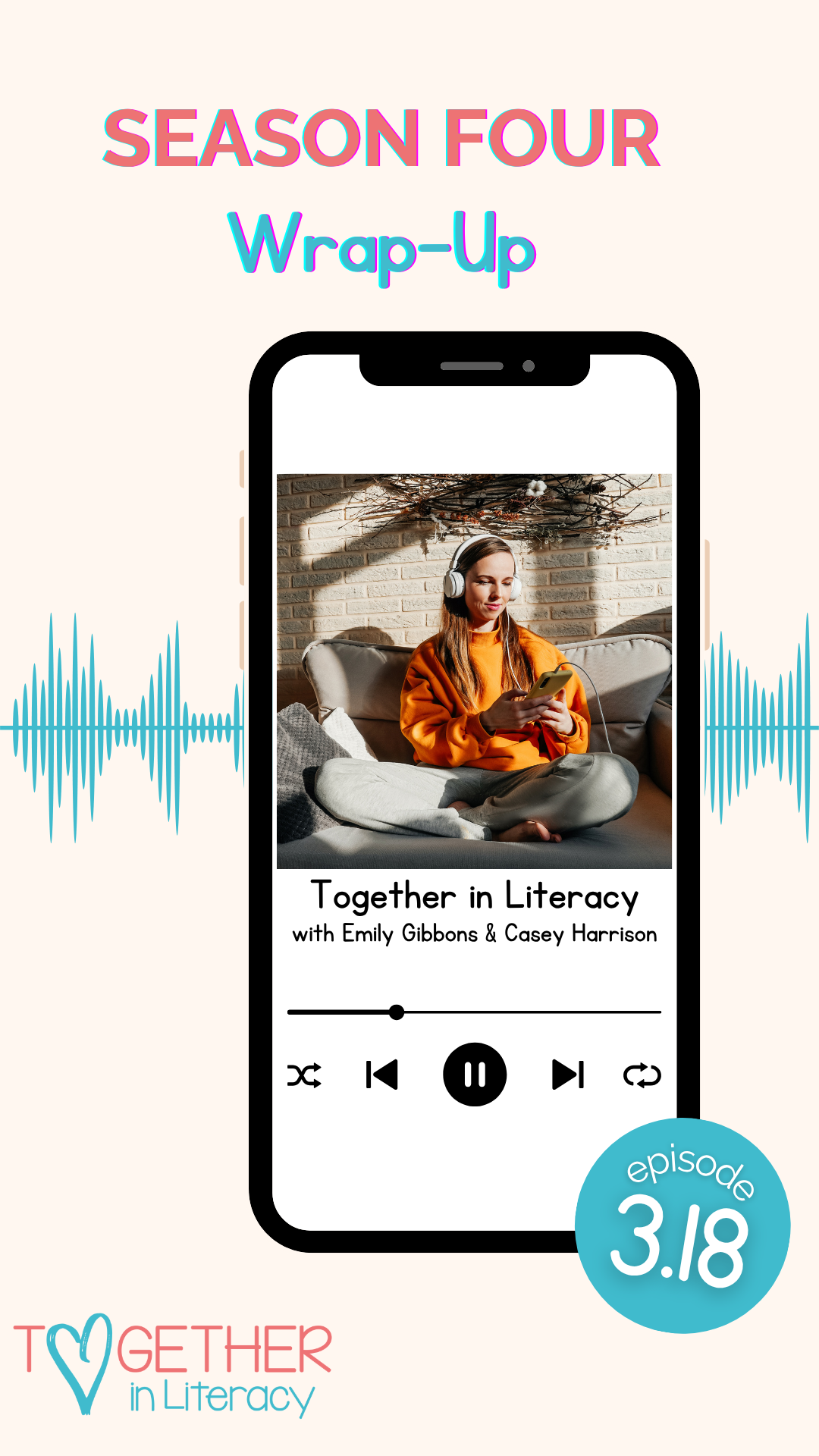Looking Back, Moving Forward: What We’re Still Learning About Dyslexia Intervention

As we close out Season 4 of the podcast, we’ve been reflecting on the many rich conversations we’ve had with educators, parents, and specialists around dyslexia, structured literacy, and what it truly means to teach with intention and insight. Every season teaches us something new, but this one really brought some things home.
 Here are Five Takeaways From Season Four of the Together in Literacy Podcast:
Here are Five Takeaways From Season Four of the Together in Literacy Podcast:
1. Deep Training in Orton-Gillingham Matters
There are lots of programs out there that say they are “based on Orton-Gillingham.” And sure, an OG-based program can bring some great tools to the table. But here's the truth: the approach itself is not a plug-and-play program. It’s a way of teaching diagnostic, prescriptive, responsive, and individualized.
In-depth training, ideally with a supervised practicum, makes a world of difference. It’s where you learn to make the kind of moment-by-moment decisions that matter. You’re not just delivering content, you’re analyzing your students’ responses, adjusting your instruction in real time, and selecting just the right scaffold to move them forward. That doesn’t happen in a one-day overview or by reading a script.
When teachers are deeply trained in the Orton-Gillingham approach, they’re better prepared to deliver lessons that meet the needs of the learner right in front of them, not just the one in the teacher manual.
2. The Field Is Evolving, Stay Curious
Dyslexia intervention isn’t static. We’re constantly learning more about what to assess, how to assess it, what interventions are most effective, how to deliver them well, and how to support long-term reading success.
That means if you’re doing this work, ongoing professional learning isn’t optional; it’s essential.
Staying current doesn’t have to mean reading dense journal articles every night (though we love a good article!). It might mean joining a book study, attending a webinar, listening to a podcast, or following thought leaders in the field. The point is to stay curious. What we knew ten years ago is not everything we know now. And that’s exciting! Our students deserve to benefit from the best of what the science of reading has to offer.
3. Data Is Important, But Students Are More Important
We love a good progress monitoring chart as much as the next person. Data gives us important insights into how a student is responding to instruction, what needs to be reviewed, and where the pacing should be adjusted.
But we can’t forget that behind every data point is a student, a real person, with real emotions, strengths, and challenges.
One of the most powerful parts of the O-G approach is its responsiveness. When we’re trained to observe closely and teach diagnostically, we’re better able to respond not only to a student’s academic needs but to their emotional needs, too. Dyslexia can be frustrating. School can feel defeating. And our students often carry a heavy emotional load from years of struggling to learn to read and spell.
That’s why emotionally sound teaching matters. We look at the whole student, what motivates them, what discourages them, and what helps them persevere. We help them find success and celebrate small wins. We don’t just deliver content; we create connections.
4. Stories Build Empathy and Drive Change
If there’s one thing that sticks with listeners season after season, it’s the stories.
When a parent talks about the heartache of watching their child lose confidence… when a teacher shares the moment a struggling student finally cracked the code… when a dyslexia advocate recalls the fight to get their child support… it hits differently.
These stories are more than anecdotes. They are the reason the work matters. They humanize what can otherwise feel like an academic conversation about policy or pedagogy. And they remind us of the very real impact of this work.
Whether you’re a teacher, administrator, policymaker, or parent, taking time to listen to lived experiences is key. Stories foster empathy, and empathy drives action. When we know better, we do better, and stories help us know better.
5. Highly Trained Teachers Create Clearer Pathways to Mastery
This one connects back to where we started: teacher training.
When a teacher is trained to be both diagnostic (observing the student, identifying the specific barrier) and prescriptive (choosing the right response based on that observation), the instruction becomes powerful.
It's not about following a script. It's about teaching the student in front of you, not the one the curriculum imagined. It’s about knowing how to differentiate effectively, how to connect skills across strands, and how to build automaticity and confidence step by step.
This kind of teaching requires skill, patience, and deep understanding. But when it’s done well, the pathway to mastery becomes much clearer for the student. They get what they need, when they need it, in a way they can access and build upon.
Final Thoughts: We’re Still Learning
One of the themes that emerged again and again this season is that we are all still learning. Even the most experienced practitioners continue to ask questions, dig into the research, reflect on practice, and refine their approach.
That’s what makes this field so meaningful. We don’t arrive at a final destination where we know it all. Instead, we stay in a posture of curiosity, humility, and advocacy—because the stakes are high, and the kids are worth it.
So whether you’re a parent just discovering dyslexia for the first time or a veteran educator brushing up on best practices, we invite you to stay in the conversation. Keep listening. Keep learning. Keep showing up for kids.
Because that’s how change happens. One student, one lesson, one story at a time.
For the full discussion, check out our latest episode of the Together in Literacy podcast. If you like what you hear, don’t forget to rate, leave a positive review, and subscribe!
We officially have merch! Show your love for the Together in Literacy podcast by sporting a t-shirt or sweatshirt!
Looking for strategies and resources?
Sign up for our newsletter for news, resources, and freebies delivered straight to your inbox.
We hate SPAM. We will never sell your information, for any reason.
